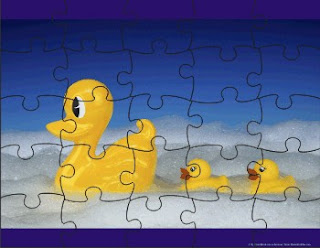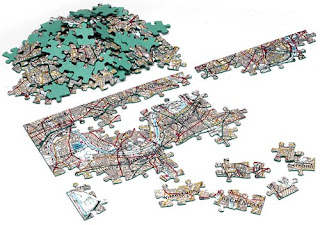I was a iPhone-only user for about 2 years when I got my Nexus One last year. Instead of ditching the iPhone, I've been using both devices for the past year - the Nexus One as my phone and internet device (email, browsing, etc) and the iPhone for music and gaming. I take both of them when I travel, when I go to work, when I get in the car, etc. After a bit, I realized I didn't want to ditch either of them, as I liked and disliked things about both of them, and thought of an interesting way of explaining that.
iPhone

The iPhone feels simple, yet complete. It knows what it can do, does it very well and rarely screws up - the homescreen is a simple icon grid, all settings are in one place and everything is smooth and neatly animated. The downside of course is, that is feels a little dumb - notifications are uselessly simplistic, apps can't tie into each other and worst of all, you have to use iTunes - the music player/content store/social network/central hub/software configuration system/kitchen sink monstrosity that makes me yearn for the days of Real Player.
Android
 Android feels smarter and more ambitious, but very much incomplete. It allows you to personalize your device as much as you want, apps can tie into each other and adjust to different phones and it uses Google's cloud as an integral link to the device - your email and calendar just show up, apps can be pushed from a browser and software updates are quick, painless and delivered over the air. The downside is that Android is still very much a work in progress - you can wipe your device and sign into another and your email/calendar/contact list will show up, but not your call or SMS log. Music? Figure it out yourself!
Android feels smarter and more ambitious, but very much incomplete. It allows you to personalize your device as much as you want, apps can tie into each other and adjust to different phones and it uses Google's cloud as an integral link to the device - your email and calendar just show up, apps can be pushed from a browser and software updates are quick, painless and delivered over the air. The downside is that Android is still very much a work in progress - you can wipe your device and sign into another and your email/calendar/contact list will show up, but not your call or SMS log. Music? Figure it out yourself!Growth and Development
Both platforms are changing and the analogy applies here as well. We can imagine Android to be a big puzzle that Google solves in public by adding more pieces all the time, whereas we can imagine Apple releasing a complete, solved puzzle once a year - each puzzle being larger than the previous, yet still containing the previous year's puzzle in itself.
Ultimately both have to borrow a lot from each other's play book - Apple must eventually ditch iTunes as a hub and move to the cloud (image the absurdity of using your PC to sync your phone in 2015), while Google must still deliver important pieces like purchasing music and other content.

2 comments:
About your notes at the end, I think 1) Apple will hold on to iTunes as a hub for as long as they can, and even when they finally get all of the well deserved criticism for it, it will be the source of the wireless syncing. Imagine having to download iTunes onto a computer just to go into the App Store and have an app wirelessly sent to your phone. Also, iTunes would likely have to be running on your home computer to sync your media with your iDevice, which would be a pain as well since it is a resource hog.
Google, on the other hand, already has wireless app downloads via market.android.com, and plans for an over-the-air music store were unveiled at last year's I/O conference. I think we can expect a working, public version to launch around that time this year (May), as well as a cloud-streaming process for music on our PCs.
I do agree that SMS and call logs ought to be backed up with other Google Account data; for now, there are apps that can handle that for you, but certainly native support is needed. iPhones, however, get nothing synced back except things on iTunes (and my experience with iTunes, which I've thankfully moved on from, shows iTunes as being slow to the point of having to dedicate a day or night to the sync; a day or night without use of the device).
Have you used Android 2.3 yet, or seen the videos of 3.0? I use 2.3 on my G1 (the first Android device, and it's well beyond outdated), and it runs smooth as anything. The interface is finally beautiful, and the OS just seems much closer to "done" than any previous version. Also, "figuring out" music isn't difficult at all. When I got my G1, I immediately copied all the music I wanted to my sdcard, and not having playlists was a non-issue because I don't use playlists much. For those that do, however, the process is simple once you know how to work the OS - clicks of Menu, and longpresses of anything that needs to be interacted with.
MEI options depth of experience in medical, industrial, semiconductor equipment and military products. All product development efforts begin with a singular set of requirements, but we deliver results that share a typical standard of excellence in kind, perform and design. As a Lincoln graduate with a solid foundation of the CNC milling, turning, CAM methods, , and programming, you will be be} well prepared for the work that you will face every single day once you begin your career. Most graduates begin as an entry-level CNC Machine Operator or Set-up Technician. All of the data and abilities you gained will prepare you for various industries like automotive, aviation, military Electric Lighters for Women protection, aerospace and different types of superior manufacturing amenities. An exciting career in CNC Machining implies that you should have} the flexibility to take products from the conceptual stage the best way|the way in which} through|throughout|all through} to the ultimate design.
Post a Comment